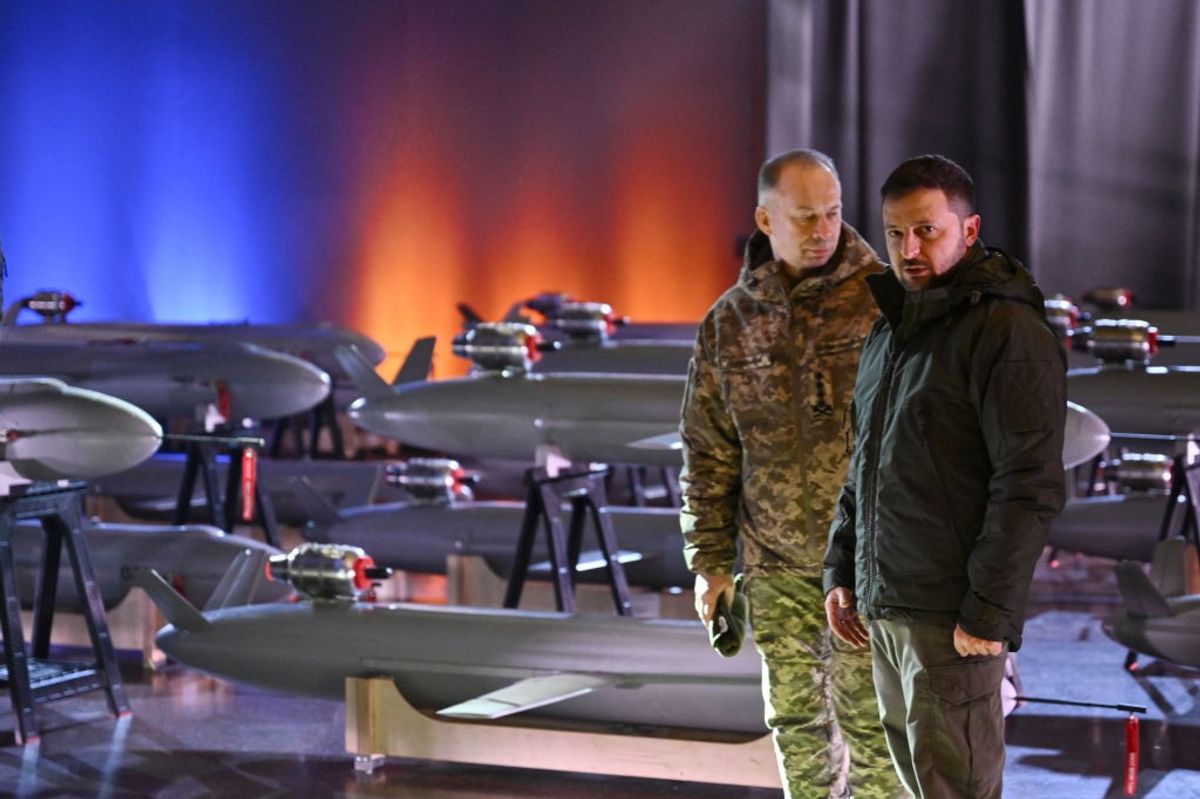Bottom Line Up Front
- On January 13th, the Turkish military sent reinforcements to the border region with Syria.
- The move comes as the terrorist group Hayat Tahrir al-Sham (HTS) has consolidated control over sections of Idlib Province.
- The HTS defeat of Turkish-backed rebels threatens the cease-fire brokered by Moscow and Ankara, designed to prevent a wider conflagration.
- A broad offensive would lead to a humanitarian disaster along the border, but ceding control of Idlib to HTS and its allies is also highly unpalatable.
Idlib Province in Syria’s northwest is the last rebel-held stronghold in the country. The territory is now firmly in the hands of a coalition led by Hayat Tahrir al-Sham (HTS). While HTS proclaims that it is an independent entity not affiliated with al-Qaeda, the organization grew out of al-Qaeda’s Syrian affiliate, Jabhat al-Nusra, following a series of strategic re-brandings. Over the last week, HTS, operating under cover of what is thought to be its administrative wing, referred to as ‘the Salvation Government,' has routed or negotiated the surrender of the last remaining ‘moderate’ rebel coalition, the Turkish-backed National Liberation Front (NLF). The NLF receives significant support from Turkey, and its collapse suggests that either Turkey cannot help the NLF enough to prevent its demise, or that the Erdogan government chooses not to for reasons having to do more with the Kurds and Manbij.
In September 2018, the pressure was building in Idlib as it appeared the Assad regime was seeking a knockout blow to end the civil war that began in 2011. With hundreds of thousands of internally displaced persons, a regime assault on Idlib would be a humanitarian disaster. Russia and Turkey agreed to a cease-fire and prevented Assad from mounting an offensive, in exchange for Turkey assuming the role as guarantor of stability in Idlib. This was supposed to include the disarmament of the most dangerous terrorist groups, with HTS at the top of the list. Throughout its numerous iterations, HTS has not altered its ideology and is still widely thought to maintain links with al-Qaeda. From the start, HTS has played the long game in Syria by working at a grassroots level to cultivate local ties. Whereas the so-called Islamic State has always been perceived as overly draconian, HTS methodically tried to avoid a similar reputation and was even able to position itself as relatively moderate when compared to the Islamic State. Accordingly, this meant that removing HTS as part of any cease-fire would be an exceedingly difficult proposition, given its political legitimacy among local Syrians.
Just how difficult a proposition is now apparent, with HTS not only in control of most of Idlib, but also parts of Aleppo and Hama. To avoid outright defeat and large-scale fighting, numerous areas administered by the NLF formally surrendered to the Salvation Government, including in the towns of Ariha and Maarat al-Noman. Rebel factions such as Ahrar al-Sham are now mostly finished in Idlib, while others, including the al-Qaeda-linked Hurras al-Deen and the Turkestan Islamic Party (TIP), remain active in Idlib and are known to cooperate with HTS. The ouster of the most hardcore militants never occurred, but the cease-fire still held, at least nominally. Russia and Turkey will coordinate on next steps, as Ankara seeks more freedom of movement against the Kurds, especially given the pending withdrawal of U.S. troops from Syria.
The HTS takeover alters the trajectory of the next phase in the civil war, tipping the balance of power in favor of the Assad regime. From the beginning of the conflict in 2011, Assad has consistently sought to transform the narrative by making the fight about supporting his government or supporting terrorists, defined as any group fighting against the regime. By systemically eliminating groups on the less extreme end of the spectrum or forcing them into alliances of necessity with groups like HTS, the Assad regime and its Russian and Iranian backers have squeezed the entirety of what was a popular uprising against a brutal multi-generational dictatorship into an overcrowded province run by an al-Qaeda affiliate. For the West, the decision about what to do next is a choice between bad and worse, and as the geopolitical dynamics change heading into 2019, it remains questionable how much leverage the U.S. and its allies actually have. Given the inability of the West to articulate a coherent strategy in Syria, it seems more likely than ever that the outcome of the civil war will be decided in the corridors of power in Damascus, Tehran, and Moscow, not Washington, London, and Brussels.










